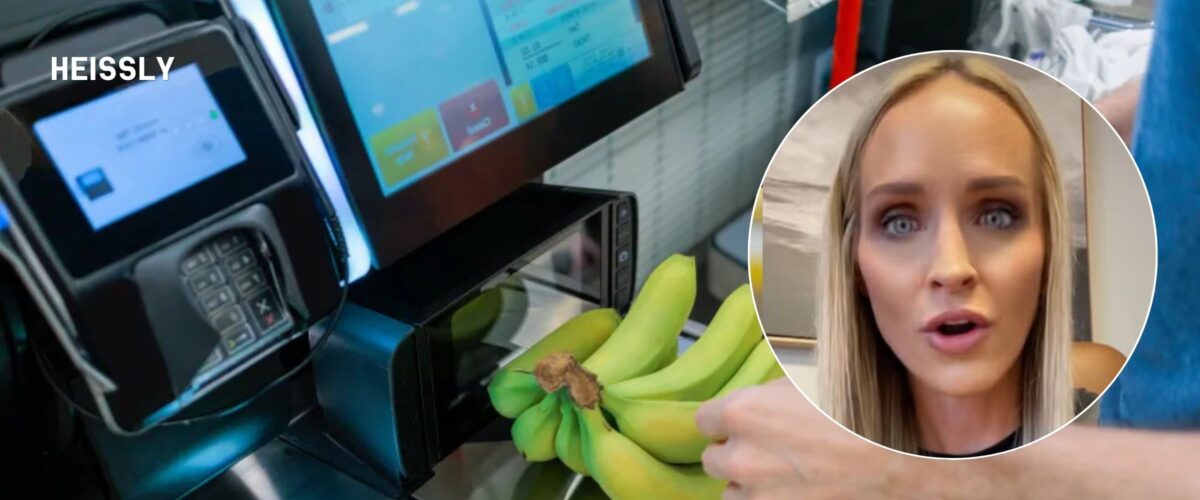The Hidden Dangers of Self-Checkout: A Lawyer’s Warning for Every Shopper
What started as a corporate experiment to cut labor costs has now turned into a legal minefield for unsuspecting customers.
Self-checkout machines—those sleek kiosks once hailed as the future of retail—are now drawing scrutiny not just for their technological flaws, but for something far more serious: turning innocent customers into accused criminals.
🧑⚖️ A Lawyer’s Red Flag Goes Viral
Attorney Carrie Jernigan took to TikTok to drop a bombshell. In a video seen by millions, she reveals one of the top three things she’ll never do again as a lawyer—and topping that list?
Using self-checkout machines.
Why? Because even if you don’t intend to steal, the machine might get it wrong. And worse—the store might accuse you anyway.
“Big-box stores aren’t spending time to see if it was an accident,” she warns. “They’re just pressing charges.”
😳 Real People. Real Charges. Real Consequences.
After Jernigan’s video, TikTok lit up with horror stories from people who got slapped with theft charges—even when they paid for most of their items:
-
💬 “My mom forgot a $3 lemon oil after spending $300. She was charged and had to do community service.”
-
💬 “It cost me $6,000 and seven months to clear my name after being falsely accused.”
These aren’t isolated cases—they’re signs of a larger trend where automated systems and hyper-efficient asset protection teams are prioritizing loss prevention over people.
📉 Self-Checkout: A Failure in Disguise?
According to a report by CNN, 67% of shoppers say self-checkout machines fail regularly. They’re clunky, prone to error, and ironically require employees to supervise them anyway.
Even worse, they encourage more shoplifting and discourage legitimate customers from returning.
“The rationale was economics-based,” says Sylvain Charlebois of Dalhousie University. “From the get-go, customers detested them.”
So why are stores still doubling down on machines that don’t work?
Simple: corporate cost-cutting.
Replacing a human cashier saves up to 66% in costs—even if it costs a few innocent shoppers their peace of mind (or their freedom).
🔍 How It Happens: The ‘Inventory Trap’
According to Jernigan, big retailers often don’t discover the alleged theft immediately. Instead, when an inventory check reveals a missing item, they review security footage.
If your face pops up as the last person seen scanning a now-missing Mario LEGO set, you might get blamed—no matter what actually happened.
And it takes very little evidence for some prosecutors to issue warrants.
You could end up:
-
Facing up to a year in jail
-
Paying thousands in legal fees
-
Spending months proving your innocence
💡 How to Protect Yourself
Jernigan’s advice is simple: Avoid self-checkout entirely.
Yes, it might take longer to wait in line—but you’re ensuring that:
-
A human is getting paid to help you
-
There’s a witness to every item you scan
-
You’re not alone against an unforgiving algorithm
And if big retailers claim they “can’t find workers”? Jernigan points to CEO salaries, which have increased 1,322% since 1978, while worker pay has barely budged.
“If they want workers, they can pay them,” she says.
🛒 Vote With Your Wallet
Want real change? Spend where people—not machines—do the work.
Supporting smaller stores and avoiding self-checkout isn’t just about convenience. It’s about fairness, safety, and not becoming a statistic in someone’s loss prevention spreadsheet.
📲 Watch Carrie Jernigan’s Full Warning:
(Insert embed or link to TikTok)
🔁 Share This With Someone You Know
Let your friends and family know what’s really going on behind those blinking kiosks. A small mistake could cost them everything.
.
@carriejernigan1 Reply to @afamily20202 ♬ original sound – LAWYER CARRIE
